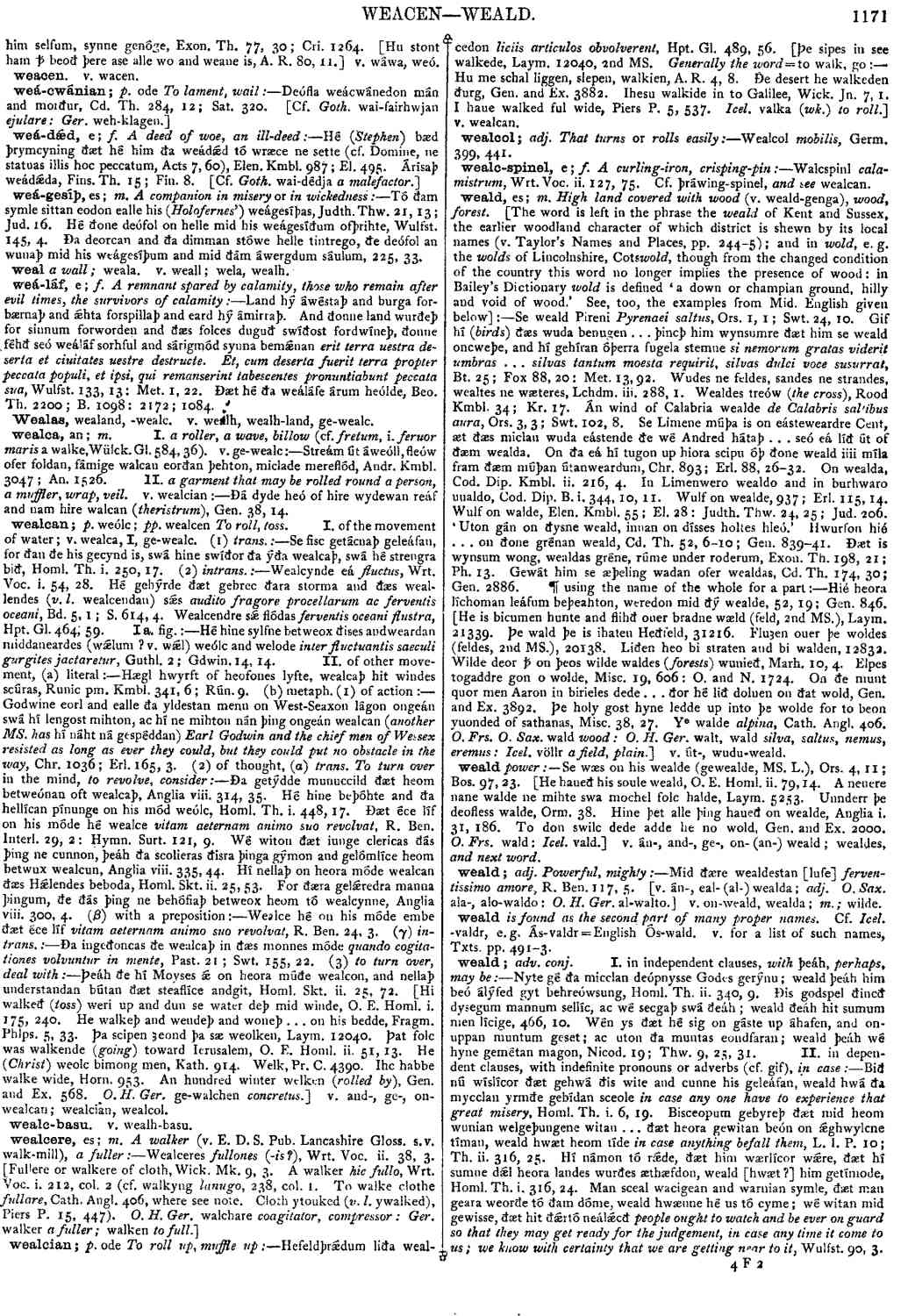weald
- adverb
-
Nyte gé ða micclan deópnysse Godes gerýnu; weald þeáh him beó álýfed gyt behreówsung,
- Homl. Th. ii. 340, 9.
-
Ðis godspel ðincð dysegum mannum sellíc, ac wé secgaþ swá ðeáh ; weald ðeáh hit sumum men lícige,
- 466, 10.
-
Wén ys ðæt hé sig on gáste up áhafen, and on*-*uppan muntum geset; ac uton ða muntas eondfaran; weald þeáh wé hyne gemétan magon,
- Nicod. 19; Thw. 9, 25, 31.
-
Bið nú wíslícor ðæt gehwá ðis wile and cunne his geleáfan, weald hwá ða mycclan yrmðe gebídan sceole
in case any one have to experience that great misery,
- Homl. Th. i. 6, 19.
-
Bisceopum gebyreþ ðæt mid heom wunian welgeþungene witan . . . ðæt heora gewitan beón on ǽghwylcne tíman, weald hwæt heom tíde
in case anything befall them,
- L.I.P. 10; Th. ii. 316, 25.
-
Hí námon tó rǽde, ðæt him wærlícor wǽre, ðæt hí sumne dǽl heora landes wurðes æthæfdon, weald [hwæt ?] him getímode,
- Homl. Th. i. 316, 24.
-
Man sceal wacigean and warnian symle, ðæt man geara weorde tó ðam dóme, weald hwænne hé us tó cyme; wé witan mid gewisse, ðæt hit ðǽrtó neálǽcð
people ought to watch and be ever on guard so that they may get ready for the judgement, in case any time it come to us; we know with certainty that we are getting near to it,
- Wulfst. 90, 3.
Bosworth, Joseph. “weald.” In An Anglo-Saxon Dictionary Online, edited by Thomas Northcote Toller, Christ Sean, and Ondřej Tichy. Prague: Faculty of Arts, Charles University, 2014. https://bosworthtoller.com/34750.
Checked: 0